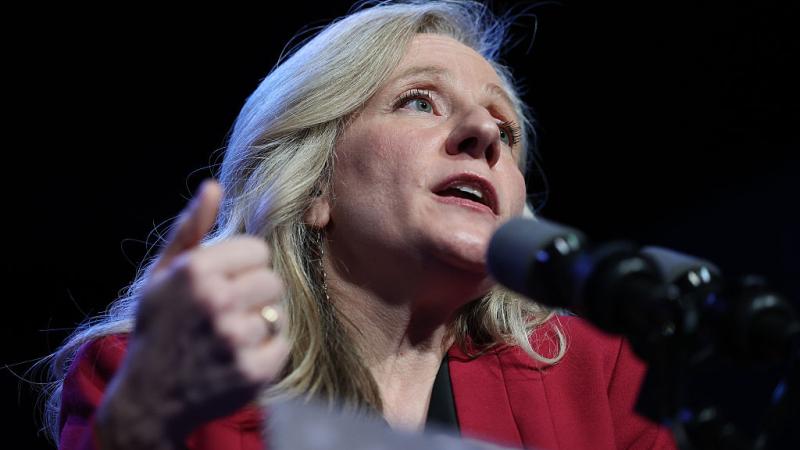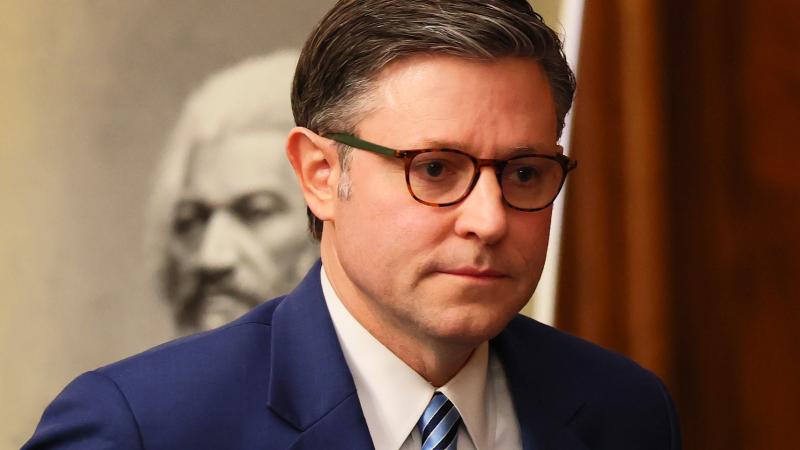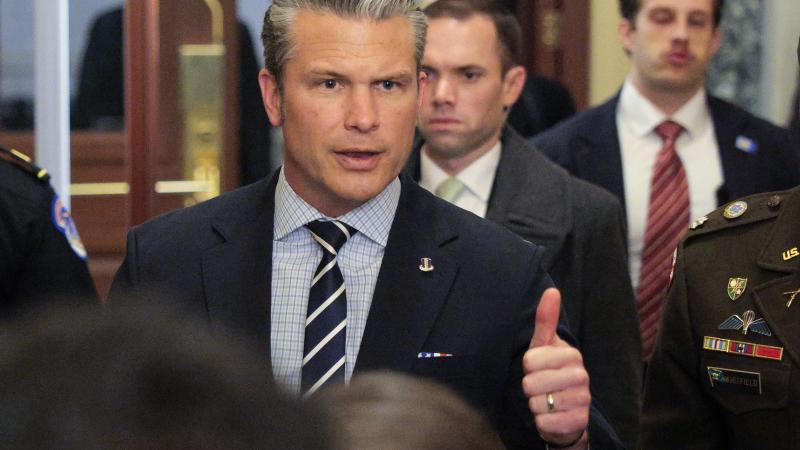Booker: Using reconciliation to pass $1.9T stimulus doesn't contradict Biden's unity message
The Democratic-led Congress is moving forward with passing the second largest stimulus and relief package in history without GOP votes
New Jersey Democratic Sen. Cory Booker said that using budget reconciliation to pass President Biden's $1.9 trillion stimulus plan doesn't contradict the president's message of unity in his inauguration address.
Reconciliation allows the Democratic-led Congress to pass the second largest stimulus package in history without GOP votes. If it passes, it would be the first major piece of legislation that makes its way to Biden's desk for a signature.
Booker was asked to explain any concerns he has with using budget reconciliation and if he thinks passing the stimulus without GOP votes conflicts with Biden's call for unity.
"I just want to just stop this idea that what President Biden is trying to do is is not a bipartisan effort. Now those in the beltway might have a good case to make that it's not bipartisan, but this is about the United States of America meeting a crisis of monumental gravity," Booker said on Monday during a news conference promoting the Black Maternal Health Momnibus Act of 2021.
"When you look at the nation as a whole, Democrats and Republicans support stimulus checks, Democrats and Republicans support raising the minimum wage, Democrats and Republicans, in fact, the Governors Association of our country, unanimously, Republican governors, and Democratic governors, support state and local aid," he added.
The legislative language of Biden's stimulus plan has not been released publicly yet. Booker said he hasn't seen any parts of the bill that aren't bipartisan.
"I have yet to see a part of this bill, that when you look at the nation as a whole, that isn't wholly, widely, deeply bipartisan. So if you want to check your measure of what's bipartisan on Republicans in the United States Senate, yeah, you may have a case. But I think the President of the United States of America is a concerned about all of our country and in this he has a bipartisan bill," he said.
"And in this crisis, where people literally are facing the loss of their lives and livelihoods, where people are in desperate straits, where tens of millions of people don't know how they're going to get their next meal for their children, when the unemployment rate for over 40 weeks has continued to see significant claims for unemployment, where we haven't had an economy this bad since coming out of World War II. I, for one, will continue my work on getting this bipartisan relief package done through reconciliation if necessary," he added.
Republicans like Senate Republican Leader Mitch McConnell have objected to federal stimulus funding going to states that have mismanaged their budgets. In the past, McConnell has referred to the state and local aid supported by Democrats as a blue state bailout.
Iowa Republican Sen. Joni Ernst has tried to block Democrats from tying a $15 minimum wage to the stimulus bill. The actual amendment Ernst proposed would have raised the minimum wage to $15 from $7.25 and lawmakers, including Independent Sen. Bernie Sanders, the Senate Budget Committee chairman, voted against it. Sanders said he wants to see a gradual increase over time to $15 per hour as part of the stimulus bill.














